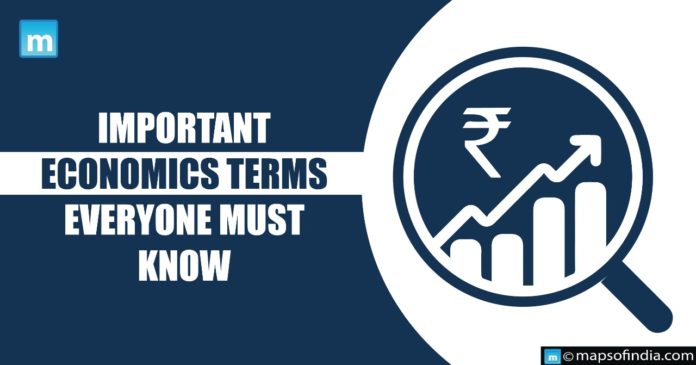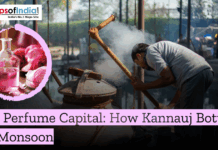Economics is not always a “boring” or “confusing” subject; it may even be enjoyable to learn if you know it well. If you think about it, studying economics is essential to understanding how a country operates. Thus it is essential to learn the fundamentals of economics.
It also helps us explain why some nations are advanced while others are in the process of development. The study of economics helps people make decisions in life because it is concerned with the distribution of resources at a fundamental level.
Let’s go through some of the most important economic terms:
Gross Domestic Product (GDP)
- The entire value of goods and services generated in a nation over a year is known as the GDP.
- GDP measures the total value of commodities produced inside a nation’s borders, whether made by domestic or foreign labour.
Gross National Product (GNP)
- Irrespective of a country’s geographic location, the GNP measures the total value of products and services generated by its people or businesses in a given year.
Net Domestic Product (NDP): It is equal to GDP minus depreciation.
Net national product (NNP): It is calculated as GNP less depreciation.
Depreciation: The gradual loss of an asset’s value due to use and abuse.
Monetary Policy and its Instruments:
- The process through which a nation’s central bank regulates the availability of money is known as monetary policy. The Reserve Bank of India is the country’s central bank (RBI).
Re-Purchase Option (REPO) rate: The interest rate at which the RBI lends money to other banks.
Reverse REPO rate: The cost of borrowing from other banks by the RBI. It is less than the rate for REPO.
Cash Reserve Ratio (CRR): The amount of liquid cash each bank parks with RBI, which is mandatory for all national banks. It represents a portion of their deposits.
Statutory Liquidity Ratio (SLR): The proportion of liquid cash reserves each bank must hold with themselves as required by the RBI.
Marginal Standing Facility (MSF): The interest rate at which banks can get overnight loans from the RBI in exchange for officially recognised government assets. The borrowing cap, in this instance, is equal to 2% of the banks’ Net Demand and Time Liabilities (NDTL).
Bank Rate: The rate (higher than the REPO rate) at which the RBI lends money to other banks is known as the “bank rate.” Bank lending rates would increase if the bank rate increased. To control liquidity, the RBI may increase the bank rate. There is no 2% NDTL restriction here.
Capital-to-risk weighted assets ratio(CRAR): The weighted assets ratio (CRAR) measures the capital-to-risk ratio of a bank.
Fiscal Policy: A government’s strategy for adjusting tax rates and spending amounts. It has an impact on the overall economy of the nation.
Fiscal Deficit: It is the discrepancy between total government spending and total revenue (excluding borrowing). When this expenditure exceeds the money brought in, there is a fiscal deficit.
Balance of Payment (BOP): The balance of payments (BOP) is the total amount of payments made into and received from a nation during a specific period.
Balance of Trade: The difference between a country’s imports and exports over a specific period is known as the balance of trade (BOT). The BOP includes the BOT.
Capital: The amount of money invested in a firm to make a profit is known as capital.
Carbon Tax: Products that utilise carbon-based materials and contribute to greenhouse gas emissions are subject to the carbon tax.
Inflation: The rate at which a nation’s prices for goods and services increase is known as inflation. As a result, the value of the currency loses purchasing power.
Depression: A protracted and severe decline in a nation’s economic activity.
Foreign Direct investments (FDI): An investment made in commercial interests in another nation by a firm or a person of another country.
Special Economic Zones (SEZs): A region or zone in a nation that has different businesses and trade rules from the rest of the nation. They are developed to boost commerce, attract investment, and provide job opportunities.




